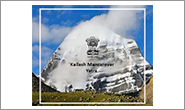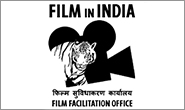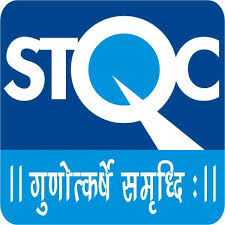Xinhua Interview of Hon'ble President of India: Full Text 05/21/2016
Interview of President Pranab Mukherjee by XINHUA Before his forthcomingvisit to China (FULL TEXT)
Q.1. Mr.President, President Patil visited China in 2010. In the past 5 years,the relationship between the two countries has undergone a deep change. You will be paying a visit to China shortly, how do you evaluateIndia-China relations at present?
A: Weaccord high priority to our relations with China. Our Closer DevelopmentPartnership is broad based and covers the political, security, economic,educational and cultural fields. Both countries have established a rangeof mechanisms in all areas of cooperation, including at the Ministerial level,such as the Strategic Economic Dialogue, High Level Meeting Mechanism onSecurity and the Joint Economic Group on Trade and Investment. Thesharing of relevant developmental experiences is an important aspect of ties. We regularly exchange views on regional, global, and multilateral issuesof mutual interest. As two major Asian countries, the two sides are awareof the potential that bilateral relations hold. Both sides are engaged to findan early resolution to the outstanding issues which hold back development ofbilateral relations to its fuller potential. We wish to have a strongpartnership with China based on mutual trust and friendship, and sensitivity toeach other's concerns, interests and aspirations.
During my forthcoming State Visit, I expect toexchange views on all aspects of our ties with the leadership of China. Iwill also share our ideas on how both sides can anchor our ties in apeople-centric partnership. I firmly believe that it is essential for thepeoples of both countries to walk together on the world stage in order to makethis century a truly Asian Century.
I am confident that my visit will add further depthto our partnership and open new opportunities for cooperation in a wider numberof fields. China is one of our most important partners and we arecommitted to intensifying engagement.
Q.2. Mr.President, the leaders of the two countries have repeatedly stated that theworld has enough space of both China and India to develop together. Thetwo countries have achieved the fruitful cooperation in Asian infrastructureInvestment Bank, the United Nations climate change negotiations, and WTOnegotiations. Communication between the common people has increasinglydeepened; trade and investment trends have shown a good impetus. How youdo think China and India should continue to push forward the cooperation inthese areas.
A: India's role and partnership in theprocess of bringing into existence the New Development Bank and the AsianInfrastructure Investment Bank as two fledgling Multilateral Development Banks(MDB) display our commitment in strengthening the global financial architectureto foster enhanced regional cooperation, sustain growth, promote economic andsocial development in the region.
As the founding member and major shareholder of these new MultilateralDevelopment Banks (MDB), India is committed to work closely with other partnersand international community to achieve the above goals.
India has signed the Paris Agreement under theUnited Nations Framework Convention on Climate Change (UNFCCC) on the Earth Daymarking a milestone in the ongoing process for Global Cooperation on ClimateChange. As developing countries, both India and China understand the need forbalanced yet ambitious actions to address climate change based on theprinciples of equity and common but differentiated responsibilities andrespective capabilities. We recognize the imperative to evolve sustainablepatterns of consumption and production, with developed countries taking thelead, and the importance of climate justice, in strengthening the globalresponse to the threat of climate change without putting inappropriate economicburden on developing countries.
Q.3. There are some sensitive problems left overfrom history between India and China. The outgoing Chinese Ambassador toIndia, while describing the relations between the two countries said that isthat the future is brilliant but there is a need to shoulder the heavy burdenand embark on a long journey. In your opinion, what measures should betaken to properly handle the differences between the two sides and prevent theboundary problems from interfering with the normal development of bilateralrelations.
A: In the last two decades, we have witnessed unprecedented expansion anddiversification of our bilateral relationship. Our shared civilizational pastand our common Asian identity was the basis for both countries to developtogether and live in friendship in pursuit to make the 21st centuryan Asian Century. We would like to expand and diversify our engagement withChina across various fields while proactively addressing outstanding issuesincluding the boundary question. We seek a fair, reasonable and mutuallyacceptable settlement of the boundary question and, pending the boundarysettlement, to maintain peace and tranquility in the border areas. Both sidesshould strive to ensure that the outstanding issues are addressed in a mannerthat demonstrates mutual sensitivity to each other’s concerns, interests andaspiration. Only in this manner can we ensure that these differences will notcome in the way of continued development of bilateral relations. We shouldenhance our mutual trust and understanding through stepped-up dialogue on political,security and strategic issues. We should expand our defence exchanges andincrease economic engagement, especially through greater investments. Functional cooperation at international forashould be stepped up and cultural as well as people-to-people contactsdeepened. We must foster links at thestate/provincial and local levels.
Q.4. The “One Belt and One Road” initiativeproposed by President Xi Jinping has been favourably received by the countriesalong the “One Belt and One Road”. India also attaches great importanceto the construction of inter-connectivity in the South Asia Region. Howdoes India, as an important South Asian country, view the “One Belt and OneRoad” initiative? Accordingly to you, what opportunities will tbe “OneBelt and One Road” initiative bring for regional cooperation in South Asia?
A: Building connectivity is an important aspect of our nationaldevelopment. Connectivity can benefit the people and impart a freshmomentum to regional development. In India, a number of projects arebeing undertaking including in co-operation with other countries.
A better connected Asia requires that all concerned countries consulttogether on determining the best way forward. Such cooperation should begoverned by commonly agreed international norms and practices and shouldreflect the interests of all concerned parties.
Q.5. The people of China and India have a longhistory of friendly exchanges. For thousands of years, the people of bothcountries have set up the model of intercultural communication through culturalexchange and played an important role in advancing the progress of humancivilization. In your view, what positive impact does expansion ofcultural and personnel exchanges have on promoting the development of bilateralrelations?
A: Culture is the bedrock on which thehistorical relations between India and China have flourished, and its promotionwill nourish our people-to-people friendship. The history of cultural andacademic relations between our two civilizations serves as example for moderncultural interaction based on mutual respect and equality.
India and China have complemented each other. Studies have shownthat while knowledge flowed freely between us, it was enhanced by the other sothat both civilizations were enriched without either dominating the other. Soharmonious was our cultural understanding that even when the two civilizationscame into contact in South East Asia and Central Asia, there was agive-and-take that allowed the rise of syncretic cultures in these regions.
I believe it will be much easier for us to draw upon our gloriousancient past to enlarge points of synergy and interface between India andChina. This will enable us develop a matrix of cross-cutting contacts that helpenhance our mutual understanding and enrich the bilateral discourse.
Supplementary questionfrom Mr. Wu Qiang of Xinhua News Agency Why didyou choose Guangzhou as the first stop in your visit?
Hon. President: First of all, this is one of the most important Provincesof China where huge economic development is taking place. Secondly, over the years, we had good politicalcontacts with the people and leadership of China in that region. Right now, large number of Indians lives inthat area.
It iscorrect that I went to Guangzhou to open our Consulate when I was ForeignMinister. But even before that I had opportunity of visiting that beautifulcity when I first visited China, not as a Minister but as the Deputy Chairmanof Planning Commission on the invitation of the Planning authorities ofPRC. This was sometime in 1993. At that time, I visited Guangzhou, Beijing,and Shanghai. Naturally, as President ofthe Republic of India, I am visiting Guangzhou for the first time. I am gladthat the authorities of PRC have agreed and we are starting our visit fromGuangzhou and ending it at Beijing. I amquite confident, as I stated to your colleague during the television interview,my visit would be successful. We will not only deepen our relationship, we willexpand it. It will be a truly all-comprehensive partnership between two greatcountries.





























